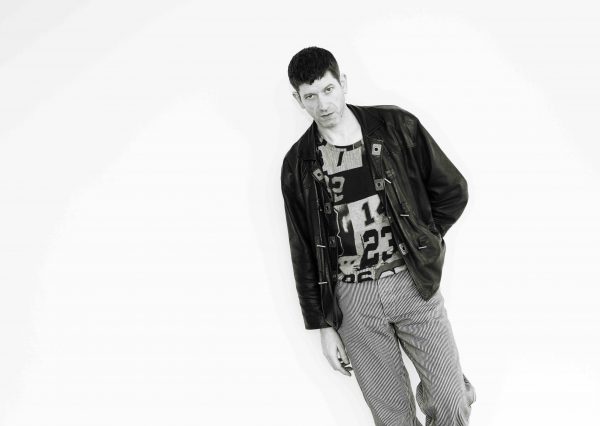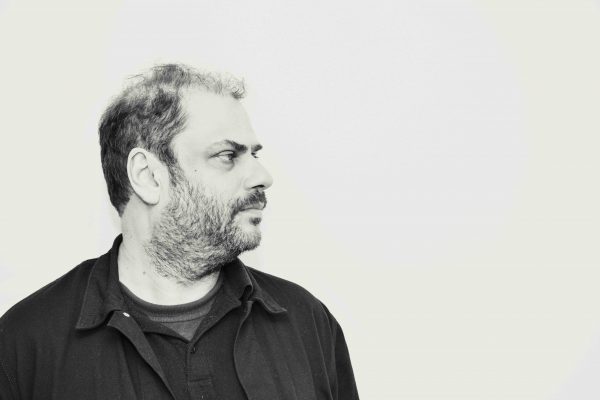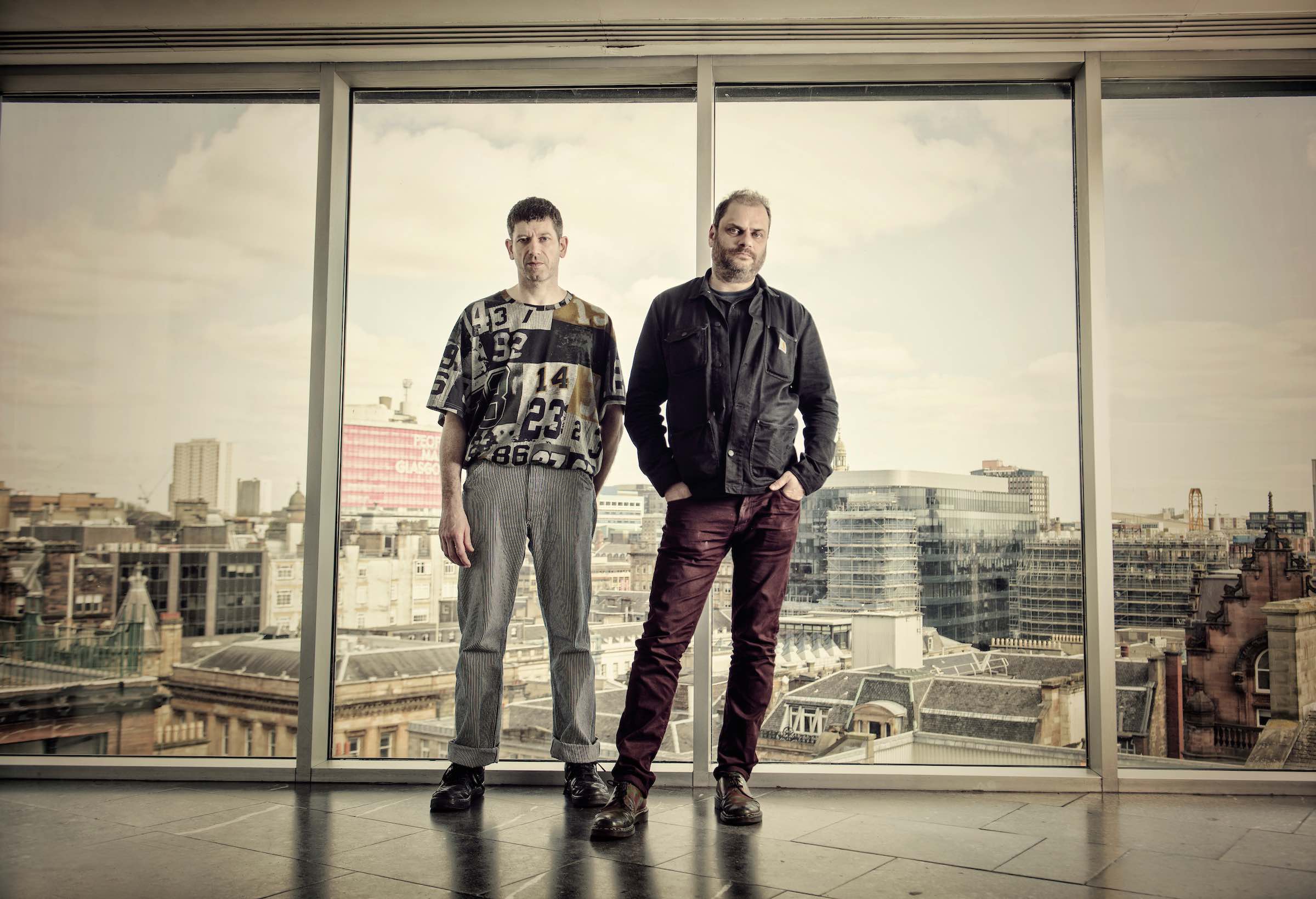Back in the late nineties, there was something close to a movement of music enthusiasts that sought to redefine the parameters of what constitutes a DJ and a club night. It was a bolstered by an unique attitude and an innovative pursuit that defied any idea of zeitgeist or tradition for the sake of infusing some excitement on stale dance floosr. It went from some unilateral persuasion amongst a handful of DJs to spread across the world in a complete shift in the universal spirit to DJing and club nights, and today some of these DJs are held in the highest esteem the world over.
In Glasgow and Scotland Optimo Espacio held court in this era. The club night and DJ duo, often foreshortened to simply Optimo, had not merely instilled this new attitude to DJing and clubbing in Scotland, but eventually played a significant hand in setting the stage for what soon became an international pre-occupation to dig further and deeper through their record collections, flouting the preconceptions and conventions that had become entrenched in club culture.
J.G Wilkes and J.D Twitch (Keith McIvor) are Optimo, and their club night, Optimo Espacio at Sub Club in Glasgow had been a kind of Mecca for clubbing enthusiasts for over 13 years before they brought it to its inevitable conclusion at the height of its popularity. From the club night, they became sensations on the international DJ circuit and set up Optimo records and various sub-labels as a continuation of the indelible spirit they continue to cultivate from the booth.
Their legacy is enshrined today in the annals of DJing and clubbing and as Optimo, they continue to imbibe the spirit which has set them apart since their humble beginnings, playing to intimate crowds in Sub Club. Today they are fixtures on an international DJ circuit that they helped establish and through new releases like Bergsonist’s latest on Optimo records, they continue to flout preconceptions and conventions. With a return-visit to Jaeger looming for Hubbas Klubb, we’ve seized the opportunity to send through some questions to the DJ duo in an effort to find out more about the origins of their club night and their continued pursuit of that individual attitude to DJing.
*Optimo play Hubbas Klubb this Saturday.
Hello guys, and thank you for taking the time to answer these questions. When you started working together and established the Optimo Espacio night. What kind of music were you bonding over at that time and how did it inform what would eventually become the night?
J.G Wilkes: I really think it was more a case of us bonding over the type of music we DIDN’T want to play – that which was prevalent in a lot of clubs and parties around the mid to late 90’s. Something that people were calling Techno but which wasn’t Techno at all! We wanted to play “other” records at the party and make it really fun to play. It was precarious at times and it felt that anything might happen musically. I loved that about it and I would definitely align that kind of excitement with a sense of freedom which is so important when I think about what we do. Maybe that is the appeal of Optimo to a lot of people – I hope so anyhow.
It’s important to remember that it was very much about the people who supported and attended so faithfully week in and week out. They made the Optimo (Espacio) party what it was.
How does it affect your approach to Djing when playing together?
 Wilkes: We kept it fun and when something is fun it’s easy to keep your enthusiasm for it and keep challenging oneself. I guess there must be a shared energy we possess for making what we do evolve and stay interesting.
Wilkes: We kept it fun and when something is fun it’s easy to keep your enthusiasm for it and keep challenging oneself. I guess there must be a shared energy we possess for making what we do evolve and stay interesting.
Jonnie you came from an art background, and Optimo Espacio came at a time when there was a confluence between clubland and the artworld. Were these two things something you could consolidate around Optimo Espacio as well?
Wilkes: At that time I was still showing work and was represented by a couple of galleries but I wanted to withdraw from the art world. I was finding it increasingly difficult to exist there for many reasons. When Optimo Espacio started we were building something from scratch and that was a great opportunity for me to both commit fully to dj-ing but also to get a degree of fulfilment from “making” and “doing” visual stuff as well…
You’ve said in the past there was an idea for the night before it happened. What was that initial idea and how did it change through the course of its lifetime?
Wilkes: The best way I can describe our initial idea was that we seized the opportunity to play a real breadth of music in a club context – at a location (The Sub Club, Glasgow) that was pretty much known only for house music prior to that. It was something we really craved at the time and that I personally had not been brave enough to do very often before. There was no manifesto or rigid strategy initiated when we embarked on the journey but I would say, our openness to all sorts of music coupled with a kind of DIY approach to organising the parties – a quite anarchic spirit for want of a better term remains with us still.
In a recent Interview with Erol Alkan, he mentioned you as one of the contemporary spirits in the international DJ community – DJs that were essentially bringing a much needed diversity to dance floors again. Were you aware that the diversity of you were bringing to your nights was happening simultaneously all over the world at that time, or were you operating in a pretty isolated scene?
J.D Twitch: We had no idea initially; not a clue. We started Optimo in 1997. I didn’t get on the internet until 1999 / 2000 and it was only maybe around 2002/3 that we became aware of other kindred spirits and started to play outside Scotland.
How was it all interpreted differently perhaps in Glasgow compared to places like London and Paris?
Twitch: I think people in Glasgow, at least back then, were less concerned with being caught up with perceptions of cool and just 100% devoted themselves to having the best possible time, and having wide open ears.
Sub Club played a pivotal role in the success of the night too. What made it so special, and do you think it was something that you could have recreated in any other venue?
Twitch: It was by far the best venue in the city but the thing that was really important was that they believed in us, much more than we did ourselves. For the first 18 months of doing our weekly nights there the crowd was wildly enthusiastic but small. Maybe 100 people would come which was fine with us but probably not financially good for the club. I think after a few months of this most venues would have booted us out but The Sub Club really believed this was something important and was going to really take off, and of course they were right.
When you started playing abroad as Optimo, how were you able to transport that spirit of your nights to different places all over the world?
Twitch: By not giving a fuck really, but actually it was probably more naivety. We were used to doing what we did every week so initially just did it without thinking if it would translate. Of course often it didn’t and sometimes we would tone it down a bit or at least modify it slightly as to me there is no point emptying clubs.
You ended Optimo Espacio on a significant high note and besides that and your growing DJ commitments, what was the reason behind shutting the residency down at that exact time? (I believe you were still on tour when you made the announcement.)
It felt to me that we were at the absolute peak of the weekly night and the only way was down. It could almost certainly run weekly for a few more years but the idea of it slowly dwindling away was too depressing so it felt right to end on a massive high. Also, it was so all consuming and it was important to have time to do other projects, like having the labels etc.
 13 years is still a long time for a club night, especially at that time, when everybody was going from one thing to the next quite quickly. How did you maintain that excitement around it for so long?
13 years is still a long time for a club night, especially at that time, when everybody was going from one thing to the next quite quickly. How did you maintain that excitement around it for so long?
Twitch: By being in love with what we were doing and giving it 100% dedication, every week. It was such an incredible experience every single week that that was enough motivation to put 100% into the next week. I devote huge amounts of my time to sourcing music for my DJ sets, music that is mostly unique to me, not just playing promos I get sent to my email inbox. What is the point of that? I might as well be a jukebox as everyone else just does that too. Working hard to find music is something I think is hugely important and that having a unique voice is the single most important thing about being a DJ. I think most DJs are pretty lazy about this but I am lazy compared to how I was when we were doing the club weekly. I would dedicate insane amounts of time to making sure it was always fresh, always exciting, never boring.
Were there ever times when it went through slumps, and how did you usually overcome those kinds of obstacles?
Twitch: No, never. After 18 months of there being 100 people there it totally took off and for the next 12 years was always packed. I don’t ever remember worrying about the numbers attending.
Going from residents to touring DJs and then also establishing a few labels around the concept, the Optimo name lived on, but was it a case of directing the ideas and philosophy of the club night into these different avenues?
Wilkes: Something I’ve realised – we work really hard to make very aspect of what we do as good as it possibly can be. We tour really hard, Keith’s commitment to the label is ferocious, if we do are own parties we put the same energy into this as we always have, the same applies obviously for our DJ sets. All this is done well because we really enjoy it. As I said before, it’s not a rigid strategy but we do possess this shared energy and a strong work ethic which feeds into everything we do.
I believe your most recent endeavour is a new sub label called Weaponise Your Sound. Where does this fit into the Optimo spectrum?
Twitch: It is a sub- label run by my friend and ally Kristina McCormack who does the Diet Clinic show on NTS which showcases women DJs and artists. I just facilitate the releases – the A&R is 100% down to her. It fits into the Optimo spectrum as I trust her taste and vision and have known her a very, very long time.
The Optimo label is still putting out quite a diverse range of music, and the most recent addition is Bergsonist, whose music plays between elements of electronica and traditional eastern influences. What usually draws you to the records that make into the label?
Twitch: So much music comes my way. I can only explore a fraction of it, but am blessed so much of its is unique and great. Bergsonist reached out to me and I was instantly smitten by her music. She is madly talented. I am drawn to artists that sound like themselves, have an outlook and attitude I can relate to and make music that blows my mind.
I know it’s mainly Keith that runs the label, but is there any relationship to the label, and the sound of your DJ sets?
Twitch: Yes, the labels are my thing and that causes some confusion. I have some new labels launching, the first of which is called Cease & Desist and is a label for compilations. . I wouldn’t release anything I wouldn’t play in a DJ set so there is a relationship for sure.
As DJs, you continue to bring that diversity to your sets, and even if there is at times a theme tying your sets together, you seem to be able to extend it to the absolute limits. It’s always dynamic and exciting, especially in an era dominated by very niche DJs. What do you think it is about your approach to music that still sets you apart from the rest?
Wilkes: I guess everyone is wired differently and perhaps some dj’s feel that they want to stick to what they know they are good at or what has always worked for them or what they see as their area of expertise – that’s fine. I admire a lot of dj’s who have this high level of detail to what they do – or as you say, it’s a kind of niche. If it is our thoughts on music in a broad sense, the notion that music in many different forms possesses power, can move people, can bring them together, can inspire radical thought, can convey feelings – it you think those things are real, like I do then maybe it’s a factor in our approach to the role of dj-ing and the music we choose to play, yes.
Do you ever find you have to adapt to a crowd, and how do you usually try and find a compromise then?
Wilkes: Yes we adapt. We feel the space, feel the sound, look at the energy spots in the crowd and work from that.
There’s a lot of similarities between Oslo and Glasgow’s club scene, and you guys have played here before. How might that knowledge affect what you prepare for the night ahead on this occasion?
Wilkes: You feel that little bit more comfortable for sure if it’s not the first time in a room. One thing that stayed with me about Jaeger was the exquisite sound. When the system is that good then you are at a real advantage when it comes to playing more challenging sounds…with power and detail in the sound you can incorporate music that is just lost on a poor system. It’s very disappointing when you literally have to exclude certain records from the set because a system isn’t capable of conveying their sound the way it is meant to be – so thankfully we don’t have to do this at a club like Jaeger!

